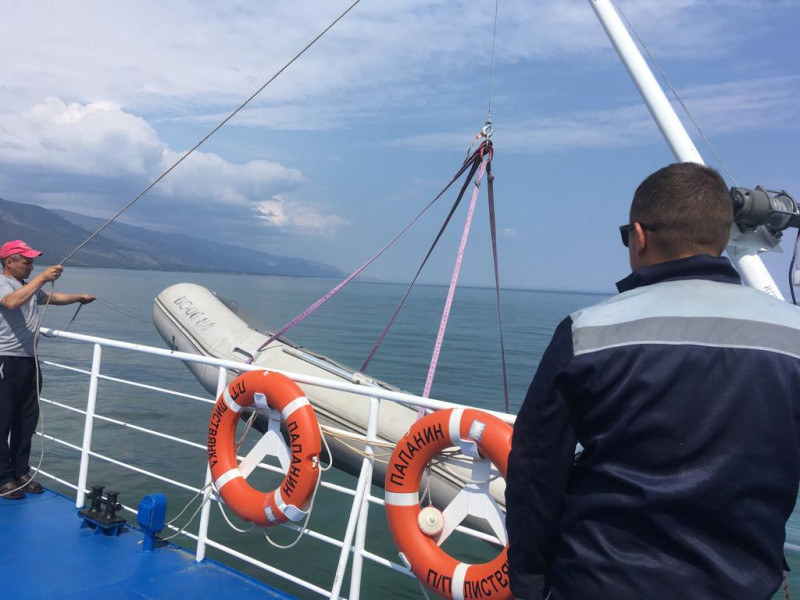Expedition on board the RV “Papanin” from 27 June to 04 July 2022
The expeditionary works were carried out to collect samples of the Lake Baikal sponges for genomic, transcriptomic and metagenomic studies of evolution, symbiosis and stress response. The works were conducted within the program “The genomics of symbiosis. Investigation of interactions between host and consortia of microorganisms and parasites” (project № 0279-2021-0011) (led by S. Belikov) and the grant of the Russian Foundation for Basic Research (grant № 22-24-01037) “Laying the groundwork for using ddRAD sequencing to analyze the phylogeny of Lubomirskiidae.” (led by V. Itskovich).
Sponges of the families Lubomirskiidae and Spongillidae were collected for analysis of biodiversity and evolution by methods of the genomic and transcriptomic analysis. Sampling was carried out at 12 stations in the Southern, Middle, and Northern Baikal at depths from 1 to 30 m. Water samples were also collected at 8 stations for comparative analysis of the microbiome of sponges and water. Short-term experiments of the impact of temperature and chemical stress on sponges were conducted. Sick and healthy sponges as well as sponges that look healthy from areas with different ecological characteristics were collected to study the transcriptomics and metagenomics of the stress response. The presence of sick sponges was noted both in areas exposed to anthropogenic influence (Listvyanka settlement) and in ecologically favorable areas (Turali Cape, Elokhin Cape, and Izhimei Cape). High-quality DNA was isolated for the analysis of the genes of the BAS synthesis in sponges by genomic methods. According to the preliminary data, the collected samples belong to at least 10 species Lubomirskiidae and Spongillidae. The samples of L.baikalensis, B.intermedia and B.bacillifera are abundant. The samples of several species of sponges were collected for genomic ddRAD analysis of intra- and interspecific evolutionary relationships of the Baikal sponges.













